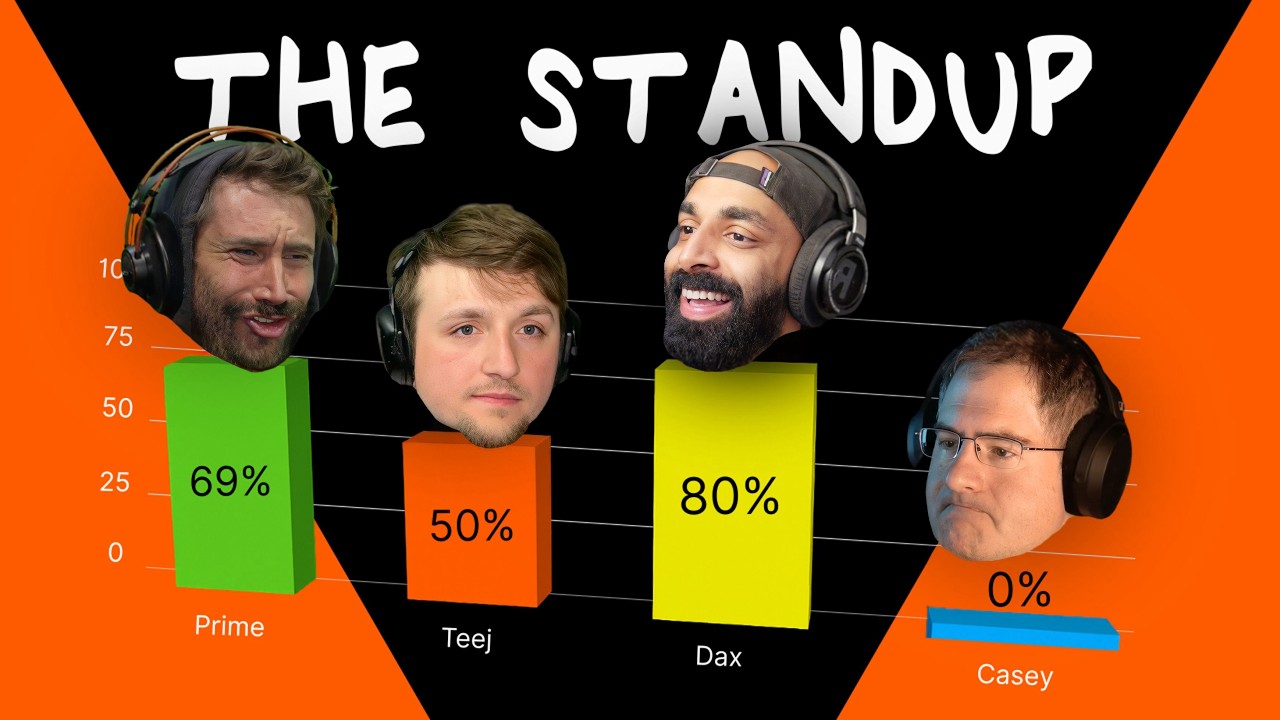The software development team candidly discusses their varied experiences with AI tools, highlighting AI’s strengths in handling simple, repetitive tasks and rapid prototyping while emphasizing the continued need for human expertise in complex, long-term projects. They agree that although AI is transforming early-stage development, it is not yet capable of addressing fundamental architectural challenges or replacing professional developers.
The video features a candid and humorous discussion among a software development team about their experiences and perspectives on using AI agents in software development. The conversation begins with light banter about chess and quickly transitions into the main topic: how each team member uses AI tools in their coding workflows. Dax shares his approach of using AI to handle simpler, more repetitive coding tasks while he focuses on the complex parts, emphasizing that AI is more useful in mature codebases rather than in the early stages of a project where foundational design decisions are made manually. He also highlights the utility of AI in porting code between languages and rapid prototyping, even if the generated code is often discarded.
Casey expresses skepticism about AI-generated code, particularly criticizing the quality of code produced through “vibe coding,” where AI drives the development process with minimal human intervention. He argues that much of the complexity and frustration in modern web development stems from poorly designed systems and APIs, and AI currently only adds another layer of complexity rather than solving these fundamental issues. Casey prefers stable, maintainable codebases and is wary of the ephemeral nature of many web technologies, which discourages him from relying on AI tools for production code.
TJ offers a balanced view, acknowledging the usefulness of AI in quickly generating prototypes and handling routine tasks like logging or error handling. He sees AI as a valuable tool for clearing backlogs of minor tickets in established projects and appreciates how it can accelerate the initial stages of development, especially for simple or short-lived projects. TJ also notes that while AI can be very helpful, it is not a replacement for deep programming knowledge and that human oversight remains crucial.
Prime shares his experience with AI, describing a cyclical pattern of enthusiasm and frustration. He uses AI extensively for quick project iterations and prototyping but prefers to write critical or complex parts of projects himself to fully understand the problem space. Prime likens AI-assisted coding to a weather forecast that is accurate in the short term but unreliable over longer periods, emphasizing that AI is currently best suited for early-stage development rather than long-term maintenance or complex systems.
The team concludes by reflecting on the broader implications of AI in software development. They agree that while AI tools are transforming how prototypes and simple projects are built, the technology is not yet mature enough to overhaul complex, long-term codebases or fix underlying architectural problems. They also discuss the hype around AI enabling everyone to code and caution that most professional development will continue to require human expertise. The conversation ends with anticipation for a future discussion on building AI agents, highlighting ongoing curiosity and exploration in this evolving field.
